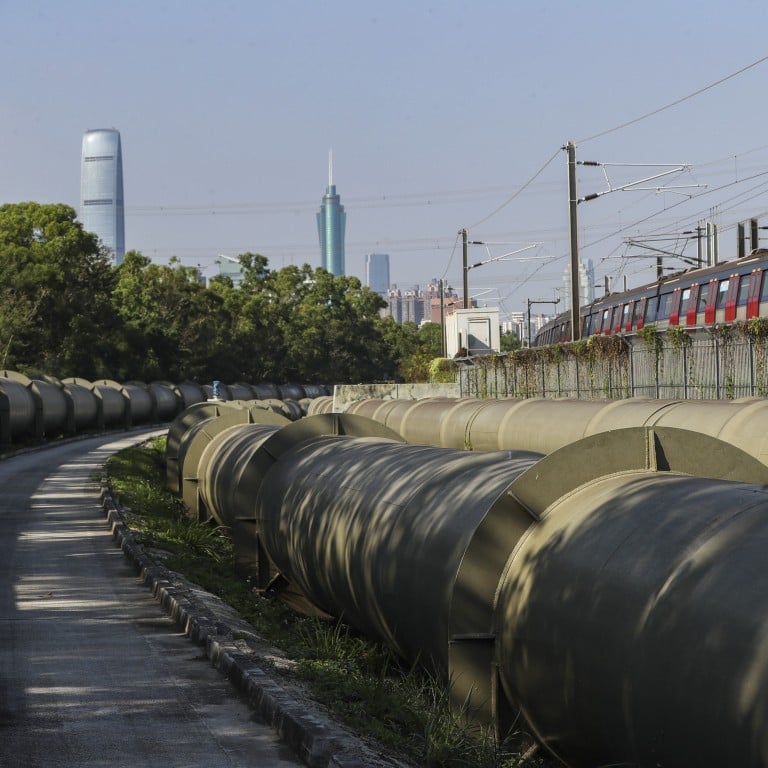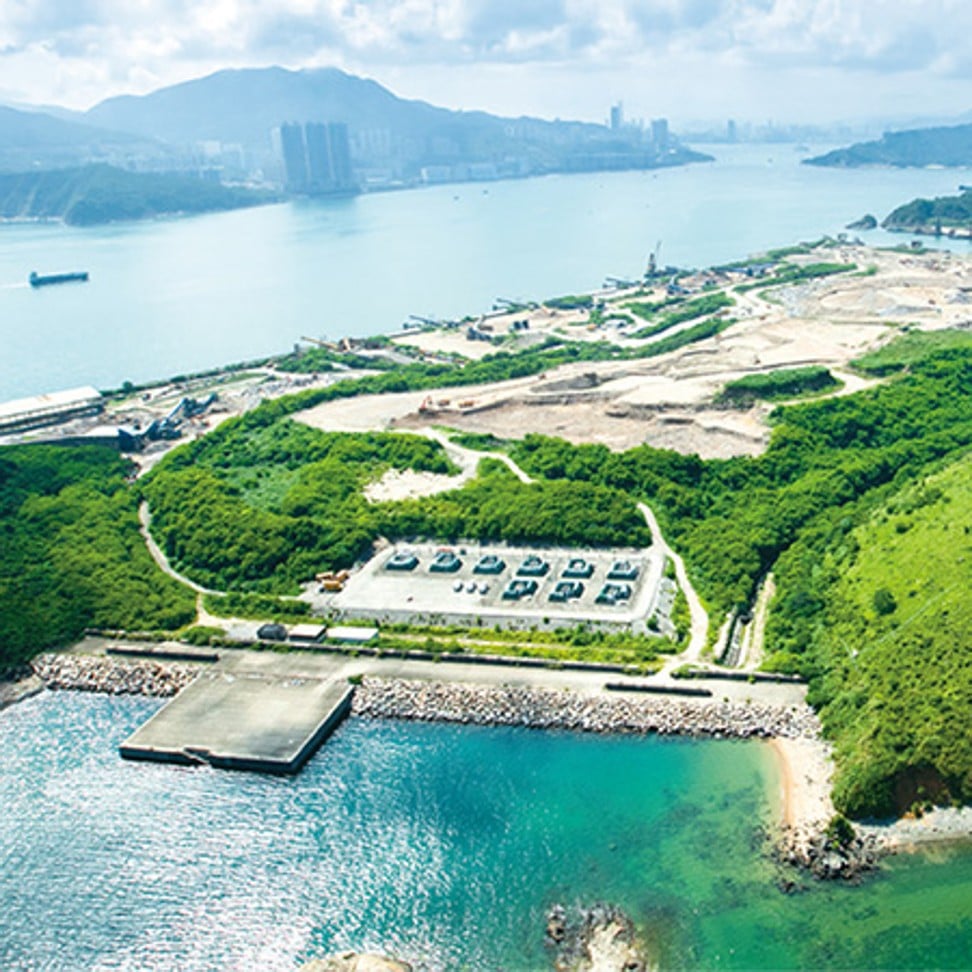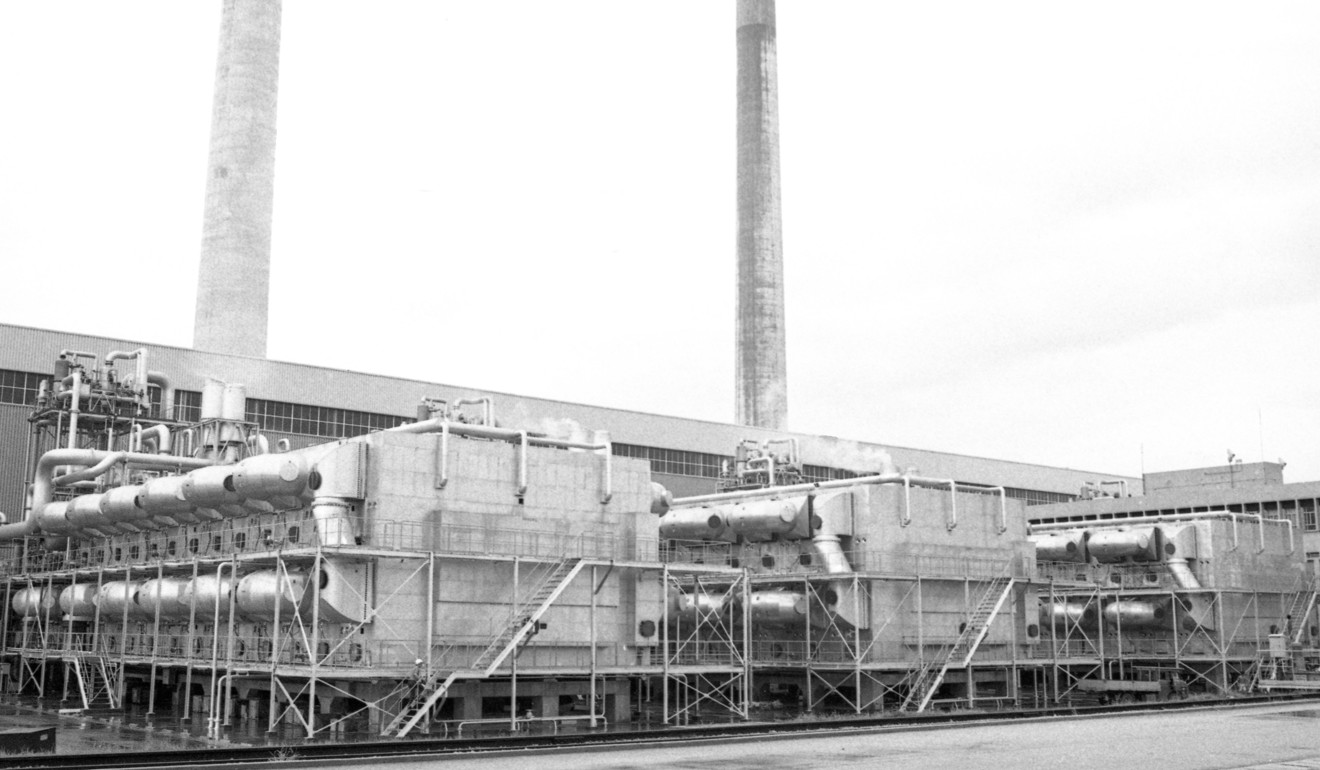
Lawmakers endorse plan for HK$7.7 billion desalination plant in Hong Kong that will meet 5 per cent of city’s drinking water needs
- But officials dismiss call for expansion of facility to cut reliance on water from across border
- Project will now be passed on to Legco’s Finance Committee to discuss funding
Hong Kong lawmakers have unanimously endorsed a HK$7.7 billion (US$987 million) plan for the government to build a desalination plant that will meet 5 per cent of the city’s demand for drinking water.
At a meeting of the Legislative Council’s public works subcommittee on Tuesday, members also urged the government to plan for the future expansion of the plant so as to lower the city’s reliance on a river in mainland China’s Guangdong province because of strategic and pollution concerns.
But officials dismissed the idea, saying both sources would be needed to offset risks from climate change on the city’s water supply, such as severe droughts.
The project will now be passed on to Legco’s Finance Committee to discuss funding, the final hurdle.

The desalination plant, on an eight-hectare site in Tseung Kwan O, is expected to produce 135,000 cubic metres (4.8 million cubic feet) of drinking water a day after it is completed in 2022, equivalent to 5 per cent of local consumption.
But officials told the meeting there was no timetable for the second stage of the plant, even though it would increase production to 10 per cent of demand.
“If there is increasing demand for drinking water in the future, we will consider the second phase, but so far we do not have any plan,” said Vincent Mak Shing-cheung, deputy secretary for development.
Let’s not wait till the water runs dry: Hong Kong’s consumption problem
Mak said that although the projected increase in the city’s future population meant drinking water demand would rise 10 per cent, the government had targeted reducing average consumption per person by the same percentage, so demand would remain stable in the long term.
At present, the city relies on Guangdong’s East River, or Dongjiang, and rainwater collected locally in reservoirs.

It will cost an estimated HK$13 (US$1.7) to produce a cubic metre of fresh water at the plant. Importing water from Guangdong costs HK$10.5 per cubic metre.
There had been concerns about the city’s reliance on Dongjiang water as localist sentiment rose. There have also been reports about serious pollution in the river.
NeoDemocrat lawmaker Gary Fan Kwok-wai urged the government to renegotiate with the Guangdong government on importing water, using construction of the plant as leverage.
Reservoir plan to save enough excess water for 70,000 users yearly
The government pays a set annual amount for water from the Dongjiang, but Fan said the actual amount used was 14 per cent lower, leading to billions of dollars going to waste.
He said the government should negotiate for a plan that pays by actual water usage.
But Mak said the purpose of the plant was to prepare for climate change, not to cut water imports.
He said the successful bidder for the plant would be in charge of its design, construction and operation, with the government providing the capital cost and an annual operation cost of about HK$300 million (US$38.2 million).

Mak added that four companies from Spain, Israel and France had already expressed interest.
In 2017, Legco approved funding of HK$900 million (US$114.7 million) on feasibility studies and preliminary works on the plant. The funding request this time will bring the project’s cost to HK$8.6 billion (US$1.1 billion).
Hong Kong operated a desalination plant in Tuen Mun in the 1970s. But the oil-fuelled plant was shut down in 1982, seven years after it came into use, because of high operating costs. It was demolished in 1991.

